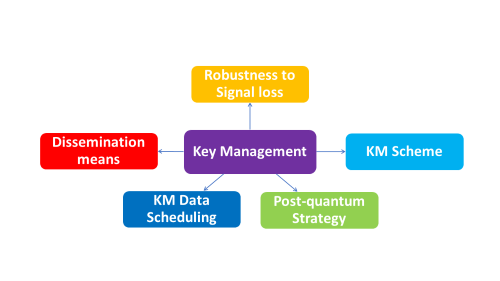E-GIANTS: European GNSS Improved Authentication Solutions
Project Details
Background
In recent years, unintentional or intentional attacks on Global Navigation Satellite System (GNSS) have been on the rise, due to the increased availability of interfering equipment.
The European Union is currently specifying the long-term evolution of the EGNSS programme, including new services for Galileo and EGNOS and mitigation against this kind of threats.
Galileo is the European global satellite navigation system that provides worldwide positioning services. It has been operational since December 2016. The Galileo constellation will eventually consist of 30 satellites in Medium Earth Orbit. Among its multiple services, Galileo will broadcast authentication data via its Open Service Navigation Message Authentication (OSNMA), which offers information about the legitimacy of the received signal and protects users from certain assaults. OSNMA authenticates the source of the Galileo Open Service (OS) data by including cryptographic data in the OS navigation message. OSNMA's premises are the publication of public keys, to be stored in GNSS receivers, allowing the authentication of the Signal in Space (SIS) E1 I/NAV data through a hybrid symmetric/asymmetric scheme and the transmission of data to authenticate the Galileo OS navigation message through the E1 I/NAV. The navigation message authentication is computed in the ground segment, uploaded to and transmitted by the satellites connected to the ground segment. This service enables Galileo user terminals to verify data transmitted by Galileo satellites, thereby protecting against potential spoofing efforts and ensuring the information's reliability.
The European Geostationary Navigation Overlay Service (EGNOS) system is currently enhancing the Global Positioning System (GPS) and providing a Safety of Life Service since 2011. EGNOS improves GPS by broadcasting correction data and integrity information for positioning and navigation applications across Europe via the L1 Coarse/Acquisition (C/A) civilian signal function. In 2025, the next generation of EGNOS, will strengthen GPS and Galileo OS constellations in the L1 and L5 bands, extending service coverage to the whole land of EU member states.
EGNOS, which is a Satellite-Based Augmentation System (SBAS), is designed to ensure the integrity of radio-navigation services in case of GPS satellite errors and ionospheric propagation effects. However, as a consequence of the massive use and dependence of GNSS in many critical sectors and infrastructures, it has been revealed the need for protection against vulnerability caused by purposeful or unintentional interference sources.
Objectives
The overall goal of E-GIANTS project is to evaluate potential EGNSS authentication solutions that take advantage of the synergies between EGNOS and Galileo, consequently the project will be divided in three work packages.
- WP1: Definition assessment of the key management for SBAS Authentication taking advantage of the potential synergies of the authentication protocols used under OSNMA and defined for SBAS authentication.
- WP2: Analysis of new non-SIS dissemination means to improve the availability of the OSNMA service to specific users under harsh operational conditions, including a security assessment.
- WP3: Definition of a service providing SBAS authentication protocol for non-aviation users through EGNOS by identifying authentication needs and performing a critical assessment of the protocol.
